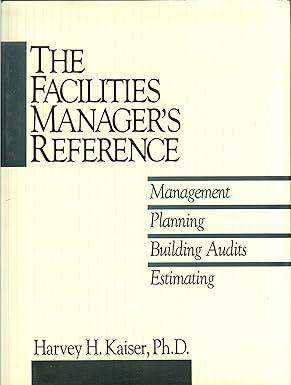Question
Imagine now that you work for FinDec (Financial Decisions) Co. Its a small firm, based in Brisbane, which provides basic financial advice, budget planning, and
Imagine now that you work for FinDec (Financial Decisions) Co. Its a small firm, based in Brisbane, which provides basic financial advice, budget planning, and retirement income strategies. Today, you are dealing with the Runkle family. The Runkles have provided some of their financial information and a set of questions. You need to prepare your answers and also get yourself organised for a meeting with them later this evening in which additional questions might be asked.
1. Meet the Runkles: Harry and Marcia. The Runkles have two boys, Brian and Terry. Brian turns 11 years old in 2020 and starts secondary school in (2021) while Terry is a year younger and starts the year after (2022). The Runkles neighbours send their children to a private school. It costs $10,000 p.a. for year 7 and increases at a rate of 15 percent p.a. for years 8, 9, 10, 11 and 12. If, instead of sending Brian and Terry to the private school, they send them to the public school for a total cost of $10,000 each across all years, how much will the Runkles have saved by the end of 2027, when Terry would finish up? [Note: this is not a time value question. Simply add up the differential].
2. If they choose the public school option, once the boys finish high school, the Runkles could put the saved money into a trust that distributes the cash when the youngest, Terry, turns 50. The trust invests into a managed fund earning an average of 7 percent p.a., how much would the two boys have to divide between themselves when Terry turns 50?
3. Harry Runkle has a weakness. He likes cars. The new Porsche Cayman looks so good on the showroom floor that he could barely control himself. He managed to escape the salesman but has been thinking about the car night and day. It is priced at $149,000. He can get 0% finance for five years with weekly repayments of $399. At the end of the five years (read the fine-print!), Harry will have to pay the remaining balance. Bearing in mind that he already has a nice car, how much could Harry save over the next ten years if: (a) he puts $399 each week into a managed fund earning 5 percent p.a. (adjust this for weekly compounding); (b) takes the total accumulated sum at the end of five years and adds to it the balance that would have been outstanding on the car loan and invests the total for a further five years into the same managed fund earning 5 percent p.a.?
4. Your firm has discovered that unplanned grocery shopping has a significant impact on the family budget (and diet). Your colleague went shopping with the Runkles and found that they spend $350 per week at the grocery store and that this included very little in the way of actual food! They have to spend an additional $150 on other food items here and there throughout the week. By developing a meal plan based mainly on fresh fruit, vegetables and some meat and having a regular grocery order delivered to avoid impulsive purchases, your firm has worked out that the Runkles could reduce their weekly expenses by $145. If the Runkles save this amount into their superannuation fund and the fund earns 8 percent p.a., how much would they have saved over the next 15 years?
Your managers guidance: Apart from answering these questions, the Runkles might have some additional scenarios to explore. For example, if they saved some amount per month into their superannuation fund, how much would it grow to? If they saved some amount into a managed fund, how long would it take until some amount was saved? That is, the sorts of basic present and future value math questions that can assist people with everyday decision-making. It should not be too complicated but you should do some practice to brush up your financial math skills before the meeting.
Step by Step Solution
There are 3 Steps involved in it
Step: 1

Get Instant Access to Expert-Tailored Solutions
See step-by-step solutions with expert insights and AI powered tools for academic success
Step: 2

Step: 3

Ace Your Homework with AI
Get the answers you need in no time with our AI-driven, step-by-step assistance
Get Started


